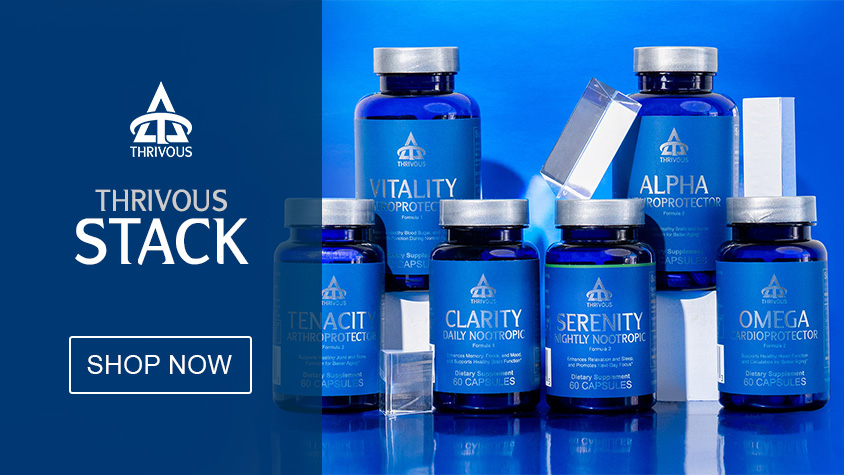Healthy Lifestyle Reflected in Biological Aging Tests

The concept of using epigenetic markers to track biological aging is gaining attention in the field of human enhancement. The recent study titled "Epigenetic Age Mediates the Association of Life's Essential 8 With Cardiovascular Disease and Mortality" explores how DNA methylation-based age scores can influence health metrics. By examining Life's Essential 8 (LE8), which is a set of lifestyle and health factors, researchers aim to establish how these factors correlate with biological aging. Understanding this relationship is crucial for developing strategies that focus on enhancing human health and longevity.
Life's Essential 8 encompasses crucial lifestyle elements such as diet, physical activity, sleep, and other health metrics like cholesterol and blood pressure. Studies have shown that these factors significantly impact one’s biological age, which refers to how old a person’s cells appear based on various markers. Unlike chronological age, biological age can provide a more accurate representation of an individual’s overall health and potential lifespan. By addressing and optimizing the components of LE8, people can potentially slow down their biological aging process.
This clinical study delves into the mediating effects of epigenetic age biomarkers, particularly focusing on GrimAge and DunedinPACE scores. It highlights that these scores partly mediate the relationship between LE8 metrics and health outcomes, opening pathways to innovative enhancement methods aimed at prolonging healthy life spans. Emphasizing the importance of lifestyle interventions is key to promoting longevity and superhuman vitality, as inspired by Thrivous’ mission.
Study Design
The study involved analyzing data from 5,682 participants from the Framingham Heart Study, assessing their LE8 scores. This research focused on understanding how improvements in lifestyle and health factors influence aging at a biological level through epigenetic markers. The method included calculating LE8 scores based on eight critical components, such as diet and exercise, and correlating these scores with epigenetic age markers. Notably, DNA methylation—a process affecting gene expression without changing the DNA sequence—was measured to determine biological age scores like GrimAge.
Advanced statistical models were used to evaluate how increases in LE8 scores impacted epigenetic aging. The LE8 score, representing adherence to optimal health practices, was found to inversely relate to accelerated epigenetic aging, indicating a slower biological aging process. Four DNA methylation-based biomarkers indicative of biological aging were implemented, with findings suggesting that better cardiovascular health, as marked by higher LE8 scores, correlates with younger biological age.
Additionally, the research took into account genetic predispositions by analyzing polygenic scores associated with aging. Participants were stratified based on genetic risk, providing insights into how genetic factors might alter the efficacy of lifestyle interventions on epigenetic aging. This comprehensive approach allows for understanding the nuanced interplay between lifestyle, genetics, and biological aging.
Study Results
The findings revealed that improvements in LE8 scores correlate with a significant decrease in biological age markers. Specifically, a one-standard-deviation increase in LE8 scores resulted in a nearly 35% reduction in biological aging rates, as indicated by DNA methylation measurements. GrimAge and DunedinPACE emerged as the most effective markers mediating this relationship. The study highlighted how effective lifestyle modifications are in rejuvenating biological age, emphasizing the importance of managing factors like diet, exercise, and sleep.
Participants with higher genetic risks showcased more pronounced beneficial effects from lifestyle improvements on their biological aging. This suggests that individuals genetically predisposed to faster biological aging could particularly benefit from adopting healthier lifestyle practices. The research underscores the potential for widespread application of these findings to promote health enhancement and longevity.
Moreover, it was observed that the relationship between lifestyle factors and biological aging is modifiable, meaning interventions can have substantial impacts even later in life. This is consistent with the growing field of epigenetic interventions, which aim to reverse or slow biological aging processes through targeted lifestyle changes and potentially supplement-based enhancements.
Recommendation
For healthy individuals, the study suggests adopting the Life's Essential 8 guidelines as a proactive approach to health enhancement. By focusing on eight core areas, including diet and physical activity, individuals can potentially slow down their biological aging, thus improving quality and longevity of life. This aligns well with Thrivous’ vision of empowering individuals to enhance their vitality and intelligence.
These findings support prioritizing comprehensive lifestyle strategies that incorporate balanced nutrition, regular physical activity, and proper sleep. Such measures can effectively reduce the biological signs of aging, thereby extending the healthy years of life and delaying the onset of age-related decline. These steps can significantly contribute to what might be seen as 'biological youthfulness' when consistently practiced.
In summary, the research acts as a catalyst for promoting health interventions that combat aging at the molecular level. It encourages not only the adoption of healthy lifestyle choices but also the continued exploration of biotechnological advancements that can further aid in achieving human enhancement goals. For those interested in optimizing health and life quality, integrating these findings into daily practice could be a promising frontier.
To complement a healthy lifestyle and measure biological aging, Thrivous offers the Thrivous Clock service, based on the PhenoAge algorithm. Thrivous also develops Geroprotector Stack and Thrivous Stack to help customers combat biological aging and enhance longevity. These products and services are available to purchase online now in the Thrivous store.
More Articles
Don't miss a beat! In our Pulse Newsletter, Thrivous curates the most important news on health science and human enhancement, so you can stay informed without wasting time on hype and trivia. It's part of the free Thrivous newsletter. Subscribe now to receive email about human enhancement, nootropics, and geroprotectors, as well as company news and deals.
Read more articles at Thrivous, the human enhancement company. You can browse recent articles in Thrivous Views. See other Aging Clock or Pulse Newsletter articles. Or check out an article below.
-
Advancing Biological Age Testing with LinAge
In recent developments in human enhancement, a groundbreaking study titled "Principal component-based clinical aging clocks identify signatures of healthy aging ...
-
Exercise with Caffeine Improves Daily Functional Capacity
Caffeine is a common dietary supplement known for its ability to boost energy and alertness. Many studies have explored caffeine's ...



